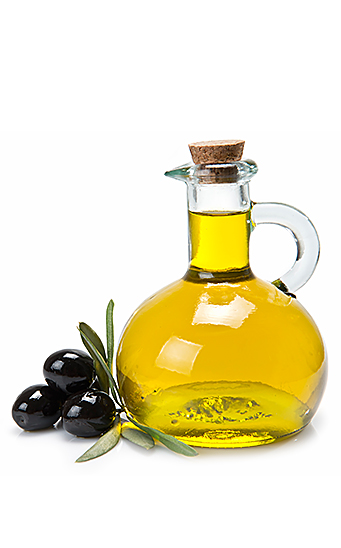
Olive oil
Mrs. María del Carmen Moreu Burgos , Pharmacist and Food Technologist, Diploma in Nutrition.
Olive oil benefits the human body in a very important way , a fact confirmed by numerous scientific studies that have contributed to its knowledge and popularization throughout the world. Besides being a fundamental and characteristic ingredient of the Mediterranean diet.
Since the time of the Romans, authentic “discoverers” of olive oil, this vegetable fat has been the object of desire of lovers of gastronomy, nutrition experts, food scientists and doctors in general , an interest that is demonstrated by the proliferation of studies on the benefits of this “liquid gold”.
The first clue that aroused the curiosity of the researchers was the longevity of the inhabitants of the Mediterranean basin , who enjoy greater life expectancy than in other developed countries. After several years of studies, the scholars concluded that the secret was in the Mediterranean diet, and more specifically in its flagship product: olive oil.
Olive oil properties
With a high content of monounsaturated fatty acids (oleic acid) and antioxidant components (vitamin E and phenolic compounds), virgin olive oil is an essential food in a healthy and balanced diet, with multiple health benefits. Monounsaturated oleic acid prevents the appearance of numerous pathologies , specifically cardiovascular diseases and cancer, and delays the aging process. This fat, according to experts, contributes to the reduction of negative cholesterol, while raising the levels of good cholesterol. The result is a lower risk of cardiovascular diseases, such as arterial obstruction and acute myocardial infarction.
- Prevents obesity. The Mediterranean countries , the biggest consumers of olive oil in the world suffer from this ailment one ten percent less than Americans .
- Prevents arteriosclerosis. Olive oil has a differential effect compared to other vegetable oils rich in polyunsaturated or monounsaturated fatty acids, being very similar to the action mechanism of Omega 3 acid. All of them lead to a decrease in LDL-cholesterol (bad cholesterol), while that only olive oil prevents the lowering of HDL- cholesterol (good cholesterol).
- Lowers blood pressure. Olive oil, through oleic acid and its antioxidant components, affects different processes related to the onset of thrombosis. In this way, oleic acid lowers blood pressure , protects the endothelium of the artery, and dampens the inflammatory process.
- Reduces heartburn. Ingestion for 30 days of diets with a clear predominance of monounsaturated fat (olive oil) leads to a reduction in intragastric acidity compared to diets rich in polyunsaturated fatty acids (sunflower oil). The use of olive oil is recommended as an effective weapon in the prevention and nutritional therapy of gastrointestinal pathologies where a limitation of gastric acid secretion is required.
- Fight Crohn’s disease. Virgin olive oil appears to have anti-inflammatory effects. Monounsaturated fatty acids and phenolic compounds in olive oil decrease necrosis and play a protective role against these diseases.
- Prevents oxidative stress. Olive oil, with a fundamentally monounsaturated lipid profile (oleic acid), very low oxidative potential and a high content of phenolic antioxidants (vitamin E, hydroxytyrosol …), represents one of the main ways to nutritionally prevent stress oxidative.
- Helps prevent cancer . Olive oil generates hormonal patterns that do not stimulate carcinogenic processes , alter the immune system less, generate significantly lower levels of eicosanoids related to tumor growth, and alter the gene expression of numerous elements related to cell proliferation to a lesser degree than other fats, mainly of the AGP n-6 type.
- It plays a vital role for the fetus . An excess of polyunsaturated fatty acids in the diet of the pregnant woman produces an alteration in the fetal metabolism and a significant delay in postnatal development , which is manifested with a slower growth rate, delayed opening of the eyes and ear canal and a slowing down of psychomotor reflexes. These changes are accompanied by a significant decrease in vitamin E and arachidonic acid in plasma and maternal and fetal tissues, effects that can be avoided when these fats are replaced by olive oil.
Medicinal and cosmetic uses of olive oil
Many of the uses for the oil are remedies used in the past to alleviate ailments . It is what is known as folk remedies, and nowadays they are no longer used because the development of the pharmaceutical industry makes us turn to drugs. However, it s on very useful and can enter part of remedies that we use daily.
Olive oil in frying
Olive oil, due to its physical and chemical qualities, is the most suitable for frying, as it better resists temperatures of up to 180 to 200 ºC. It is the most stable, its decomposition is slower and, in addition, the food is less impregnated, which makes frying contain fewer calories and is easier to digest . Olive oil supports higher temperatures than seed (sunflower, soy, corn).
Preservation of olive oil
To take full advantage of the good qualities of olive oil, it is convenient to take into account some easy tips: keep in a cool place and without direct light ; prevent it from aerating , for this we must close the bottle well; when frying it, do not use it more than five times ; do not mix it with other oils when frying; consume it up to a year and a half after its collection .






















+ There are no comments
Add yours